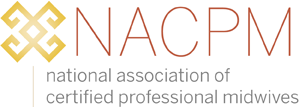March of Dimes has released its 2022 report, Nowhere to Go: Maternity Care Deserts Across the U.S., revealing access to maternity care is diminishing in places where it's needed most, impacting nearly seven million American women of childbearing age and roughly 500,000 babies. The third update of the report, produced in partnership with Reckitt, shows a two percent increase in counties classified as maternity care deserts since the 2020 report, primarily driven by hospital and maternity care unit closures and loss of obstetrics providers. The data reinforces that the U.S. is still among the most dangerous developed nations for childbirth, especially in rural areas and communities of color.
Maternity care deserts are counties without a hospital or birth center offering obstetrics care and without any obstetrics providers.
"With an average of two women dying every day from complications of pregnancy and childbirth and two babies dying every hour, our country is facing a unique and critical moment as the infant and maternal health crisis continues intensifying," said Stacey D. Stewart, President and CEO. "With hospital closures, inflation and COVID-19 limiting access to care, the compounding issues of our time are bearing down on families, forcing them to extend themselves in new ways to find the care they need and ways to afford it. Access to maternity care should not be optional, which is why we're launching the Mamagenda for #BlanketChange to build support for policies to ensure all families everywhere have access to high quality maternity care."
Specifically, the 2022 Maternity Care Deserts Report shows:
36% of counties across the U.S. are designated as maternity care deserts, counties with zero obstetric hospitals or birth centers and zero obstetric providers.;
2.2 million women of childbearing age live in maternity care deserts and more than 146,000 babies are born there;
5% of counties have a worse designation in this report than in the 2020 report;
Nearly 7 million women are living in communities with no or limited access to maternity care. 1 in 8 babies are born in these areas;
The loss of obstetric providers and obstetric services in hospitals were responsible for decreases in maternity care access in over 110 counties between this report and the 2020 report;
1 in 4 Native American babies were born in areas with no or limited access to maternity care services; and
1 in 6 Black babies were born in areas with no or limited access to maternity care services.
"Our 2022 report confirms lack of access to care is one of the biggest barriers to safe, healthy pregnancies and is especially impacting rural areas and communities of color where families face economic strains in finding care," said Dr. Zsakeba Henderson, Senior Vice President and Interim Chief Medical and Health Officer. "While we've seen a slight increase in obstetric providers nationwide, we continue seeing a troubling decrease in providers serving rural areas. In fact, only seven percent of obstetric providers serve rural areas and, with more than 500,000 babies born to women living in these areas, families in rural areas are at higher risk for poor outcomes."
There is a healthy body of research suggesting that Certified Professional Midwives (CPMs) along with their counterparts with nationally recognized credentials, Certified Nurse-Midwives (CNMs) and Certified Midwives (CMs), are urgently needed to fill this gap and will play a critical role in lowering the rates of pregnancy-related complications and maternal and infant mortality in the United States.
Over the past 20 years, NACPM has made significant strides in our commitment to policy as a vehicle for change, acting as key advisors to Congress in the development of federal legislation to address the perinatal health crisis and grow the midwifery workforce. NACPM also has a long history of working with federal agencies to help ensure that midwives feature strongly in their initiatives and programs to address perinatal health.
NACPM’s current policy priorities include:
Growing and improving the maternity care workforce by increasing access to midwives with nationally recognized credentials (i.e., Certified Professional Midwives [CPM], Certified Nurse-Midwives [CNM], Certified Midwives [CM])
Expand funding to accredited midwifery education programs whose graduates provide high-value care and are educated in fewer years at lower cost than obstetricians
Incentivize more midwives of color and indigenous midwives in the workforce to reflect the diversity of childbearing families
Prioritize funding to accredited midwifery education programs whose students plan to practice in health professional shortage areas and that demonstrate a focus on increasing racial and ethnic minority representation in midwifery education
Most recently, NACPM worked with Congress to help develop and introduce the Midwives for MOMS Act in the current Congress in both chambers of the legislature. This bipartisan legislation will establish two new funding streams for midwifery education, one in the Title VII Health Professions Training Programs to fund schools that include our MEAC-accredited schools, and one in Title VIII Nursing Workforce Development Programs. The bill addresses the significant lack of diversity in the perinatal care workforce by focusing on students from minority or disadvantaged communities. Grants under these programs would be awarded for direct student scholarships, for growing and expanding midwifery training programs, and to support, grow, and strengthen the preceptor workforce.
The BABIES Act will build off the Strong Start initiative creating a demonstration payment program under Medicaid for freestanding birth centers. The legislation provides guidance to develop a prospective payment system that would foster sustainability for the birth center model.
We Need Your Help to Pass These Bills!
Please reach out to your Congress member today and urge them to co-sponsor H.R. 3352, the Midwives for MOMS Act of 2021.
Here is an advocacy sheet you can use in making your calls.
Find your Congress members here.
Click here for specific support in navigating to your Representative’s contact information and making your call.
Please let NACPM know of any response you receive from your Congress members as a result your call – positive or negative – by writing to us at admin@nacpm.org.

